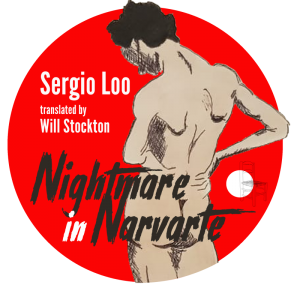Sergio Loo’s Nightmare in Narvarte is a formally original, if self-consciously imitative, novel. Sergio, the protagonist, is a childish creature whose murderous psychopathy originates in the experience of love and rejection. As Sergio's story develops through a dense web of intertextual citations from both high and low culture, it takes on the shape of a twisted psychoanalytic parable. We have here a story of the phallus: of, quite literally, Sergio’s giant cock, which transforms him into the “phallic messiah” of Mexico City’s alternative art community and spurs counter-Oedipal envy in his stepfather Pedro. We have here, too, a story of maternal hatred: of the unspeakable dimension of parenthood, whose obscene expression transforms the mother, perhaps even more than her mutant son, into a monster. But the novel is also quite funny. Among its formal achievements is the way it reckons with maternal hatred through comic postmodern pastiche. Nightmare in Narvarte abounds with jokes about everything from Mexican pop stars to lesbianism; nothing whatsoever escapes its morbid sense of humor.
Nightmare in Narvarte
* Esta contraportada corresponde a la edición de 2020. La Enciclopedia de la literatura en México no se hace responsable de los contenidos y puntos de vista vertidos en ella.



